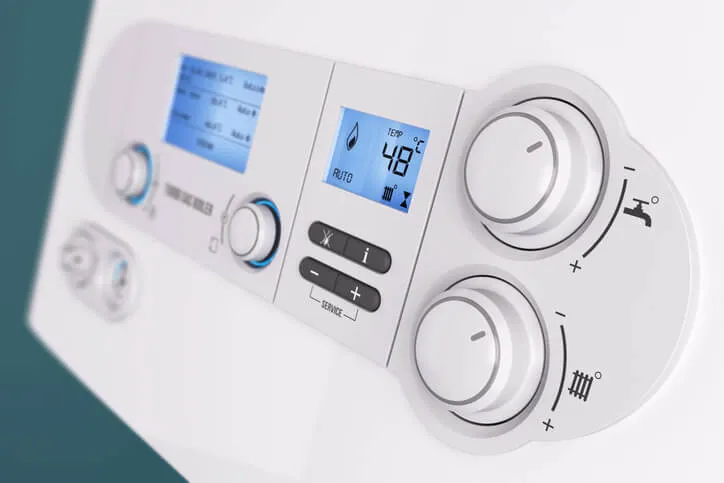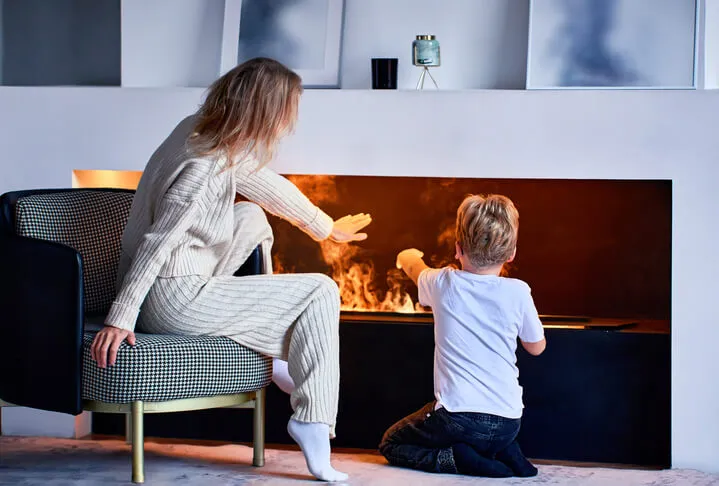Comfortably coping with winter and summer is one of the main aspirations of anyone who owns a home. However, it is not always easy to choose the right tools for each case. Because what are the best heating systems? From the outset it is appropriate to advance that there is no single correct answer, but with the right information it can be easily found.
The fact is that the best heating systems are not necessarily useful in all cases, since there are many factors that can influence their suitability. Below, we discuss these aspects and specify which are the best options in general, in addition to giving you some clues about how to choose in your particular home.
Factors to consider in the best heating systems
When defining the best heating systems, the first thing to know is that there is no specific one that is above the rest in general. The choice will always depend on the particular circumstances of each one and for this it is essential to assess the following factors.
Energy efficiency
At this point in time, considering the weather emergency situation and the price of energy, efficiency is probably the most important factor in determining the best heating systems. efficiency is probably the most important factor in determining which heating systems are the best.. Savings for this purpose are essential, both in energy production itself and in the resources invested in each use.
Space to be heated
If you are looking for the most suitable heating system for your home, it is very important that you pay attention to the space you intend to heat. It is not the same to generate heat for a single room than to do it in a whole house, in the same way that there are also differences depending on the size of the house and the number of floors it has.
Orientation of the house
Another aspect that will be decisive in the energy expenditure will be the orientation of the house. We are talking about one of the circumstances that are less valued, but the hours of sunshine that a space receives throughout the day are essential for choosing the right type of heating.
Maintenance requirements
There are heating systems that require virtually no maintenance, while in others this type of tasks are something totally recurrent. However, this need in many cases amortizes the expense, so it is not always better to choose the simplest option. Which one to choose? It depends on the other factors mentioned above.

The price of the power supply system
Among the best heating systems there are different types of power supply, and this is something we should focus on when deciding. Electricity, natural gas, butane, biomass, renewable energies, fossil fuels… How do we know which alternative is more suitable? Almost 100% of the time, one of the most sustainable ones.
Climate at the location
Let’s not fool ourselves, no matter how cold you may be, the objective data is provided by science through a thermometer. If you live in the south or on the Mediterranean coast, you need less performance from a heating system than if you live in the north. A question that becomes very relevant for the final decision in this regard.
Use of housing
It is not the same to air-condition a regular home than to do the same with a second home, just as there are variations if you spend a lot of time away from home or if most of your life takes place within those four walls. It is essential to be consistent to these effects when it comes to choosing a heating system.
Conditions of stay
Energy efficiency requirements are becoming more and more stringent for new buildings. Issues such as thermal insulation, orientation, and light and heat penetration are taken seriously in the planning of any newly constructed home, because their conditions are directly related to their energy costs, not least because of the heating systems required.
Budget and grants
Generally, the best heating systems come at a high cost that is not always affordable for all budgets. Evaluating your budget before making a decision is unavoidable, but it should also be inevitable to analyze possible grants for sustainable and efficient investments; you may be able to afford a better alternative than you thought.
Among all the options on the market, which are the best heating systems?
As we have pointed out, it is not easy to choose only one heating system as the best of all, but it is possible to evaluate its main advantages and disadvantages to assess which would be the best alternative in each case. The choice will depend on your circumstances, but with this information it will always be easier for you to make it.
Pellet stoves
Pellet stoves can be qualified as one of the best heating systems if we consider aspects such as energy efficiency, one of the most important factors at this time. However, it is also necessary to assess the size of the space to be heated, as it is not particularly useful for large rooms.
Gas boilers with radiators
The radiator is probably one of the most widely used heating systems in Spanish homes. They are usually powered by natural gas, so it is not the most sustainable alternative. As an advantage, we can highlight its ability to generate heat for larger spaces, heating all rooms at the same level.
Geothermal systems
Geothermal systems are powered by a renewable energy source -heat extracted from underground-, and can be transferred to the house through different techniques, such as underfloor heating or radiators. If you can afford it, you will be installing one of the best heating systems by far and you will amortize the investment, but its price is high.
Underfloor heating
Underfloor heating can be powered by geothermal energy, as mentioned above, but also by other systems, such as aerothermal energy -which is also a renewable energy-, electricity or natural gas. The installation involves a high investment, but if you choose a sustainable and efficient power supply you will be grateful for it.
Traditional chimneys
Surely every time you enter a place with a fireplace, your memories take you back to very happy moments. Who doesn’t like the warmth of the fire, the crackling of the wood when it is lit, the cozy smell of smoke or the bright red color of the most traditional heating system of all? Of course, if you intend to heat the whole house, this solution would be complicated, although it is more sustainable than many others.

Air conditioning
Surely the air conditioning is one of the most common alternatives for air conditioning a room, as it is comfortable and useful in both winter and summer. However, we cannot say that it is efficient or sustainable, much less that it is the best system for heating large spaces.
Electric stoves, radiators or heaters
Electricity, unless it is generated through wind, hydro or photovoltaic power – which although growing, are not yet the main power sources in this respect – is not a very sustainable possibility. While it is among the cheapest to install, the bills will eliminate any hint of savings in this case.
Gasoil Boilers
Oil-fired boilers are still on the market, although they are by no means among the best heating systems. The truth is that they are neither the most economical, nor are they completely safe and, far from it, they are not environmentally friendly. They are, however, very useful for heating large spaces, but given that there are other solutions, the most positive thing would be to opt for them.
The best heating systems for each type of home
The list of options that encompass the best heating systems is very broad, but, as you have seen, not all are the most suitable in each case. Taking into account the factors that we have pointed out, our recommendation will always be the same: if you can afford it and your home meets all the requirements for installation, choose one of the most environmentally friendly alternatives.
On the contrary, if the characteristics of the best heating systems in terms of energy efficiency do not suit your needs, you can choose to minimize the impact with the most sustainable choice within your means. In addition, this will allow you to save on your bills and maintain a pleasant atmosphere in your home. At the same time, you should consider reducing your CO₂ emissions in other aspects of your daily life.



